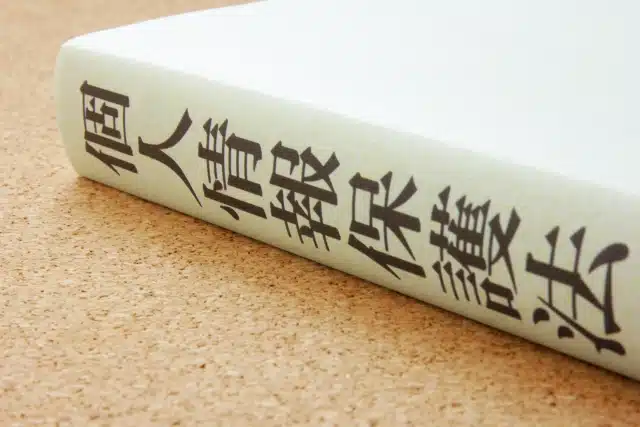Is a Freelancer Considered a 'Worker'? What Labor Managers Should Know About the Criteria for Determining Worker Status

With the rise of cloud workers accepting jobs over the internet, the ways of working are becoming more diverse. Whether or not these individuals are considered workers is a crucial point.
If someone is deemed a “worker,” they are protected by various laws such as the Japanese Labor Standards Act (労働基準法), the Japanese Labor Contract Act (労働契約法), and the Japanese Trade Union Act (労働組合法). It is essential for those in charge of labor management in companies to understand who among those involved in their operations qualifies as a “worker”.
This article provides a detailed explanation of the criteria for determining worker status, which is something that those in charge of labor management in companies should be aware of.
Definition and Importance of Employee Status
An employee is generally referred to as someone who is employed under an employment contract with an employer, but the specific definition is provided by the following Japanese labor laws.
If one is considered an employee, they are protected by various labor laws that regulate labor-management relations. Therefore, it is important to understand the criteria for determining employee status.
For example, the following laws protect the rights of employees:
- Japanese Labor Standards Act: Establishes principles for wage payment, working hours, and overtime pay
- Japanese Minimum Wage Act: Sets the minimum wage for employees
- Japanese Industrial Safety and Health Act: Ensures the safety and health of employees
- Japanese Workers’ Accident Compensation Insurance Act: Compensates for injuries to workers due to work-related reasons or commuting
- Japanese Labor Contract Act: Regulates labor contracts to protect workers
- Japanese Trade Union Act: Regulates trade unions and aims to improve the status of workers
If one is not considered an employee, they cannot receive such protections, which may be disadvantageous for those who are working.
Definition of Workers and Criteria for Determining Worker Status

The definition of a worker is defined separately by the Japanese Labor Standards Act, the Japanese Labor Contract Act, and the Japanese Trade Union Act.
Definition of Workers and Criteria for Determining Worker Status in the Japanese Labor Standards Act and the Japanese Labor Contract Act
According to Article 9 of the Japanese Labor Standards Act, a worker is defined as “a person who is employed in a business or office, regardless of the type of occupation, and who is paid wages.”
According to Article 2, Paragraph 1 of the Japanese Labor Contract Act, a worker is defined as “a person who works for an employer and is paid wages,” which is considered to be almost the same as the definition in the Japanese Labor Standards Act.
The determination of worker status under the Japanese Labor Standards Act and the Japanese Labor Contract Act is made by comprehensively considering the following items. It should be noted that even if each criterion is met, worker status is not immediately recognized.
- Cannot refuse work requests, job instructions, etc.
- There are orders for the content and execution of work
- There are specifications and management for the workplace and working hours
- No possibility of substituting labor provision (cannot use an assistant at one’s discretion, have someone else do the work in one’s place, etc.)
- There is a labor compensation aspect to the remuneration (the amount of remuneration is not based on the output, but is determined based on working hours, etc.)
- No business nature (the ordering party owns the machines and equipment used for work, etc.)
- Burden of public rents and public charges (withholding tax, deduction of insurance premiums, etc.)
Definition of Workers and Criteria for Determining Worker Status in the Japanese Trade Union Act
According to Article 3 of the Japanese Trade Union Act, a worker is defined as “a person who lives on wages, salaries, or other income equivalent thereto, regardless of the type of occupation,” which shows that it is a broader concept than a worker under the Japanese Labor Standards Act or the Japanese Labor Contract Act.
For the criteria for determining worker status under the Japanese Trade Union Act, please refer to the “Report of the Labor-Management Relations Law Study Group (On the Criteria for Determining Worker Status under the Trade Union Act)”[ja] prepared by the Labor-Management Relations Law Study Group in July 2011 (Heisei 23).
According to this report, the basic judgment elements are as follows:
- Incorporation into a business organization: The labor force of the working person is secured as an essential and important labor force for the other party’s business execution, and problems should be solved by collective bargaining
- Unilateral and standardized determination of contract content: There is a power imbalance between the working person and the other party, and the working person needs to be protected by the collective bargaining system
- Labor compensation for remuneration: The working person receives remuneration in exchange for their labor
In addition, as supplementary judgment elements,
- Relationship to respond to work requests: There is a recognition between the parties that the working person should work for the other party
- Provision of labor under broad supervision, certain time and place constraints
are mentioned.
On the other hand, “significant business nature” is mentioned as a negative judgment element. For example, if “not only in the contract but also in reality, it is possible to conduct business activities independently, etc., and there is a wide range of room to change profits and losses at one’s discretion” or “the labor supplier is using others,” it becomes difficult to recognize worker status.
Two Case Studies on Worker Status
Case Study on the Criteria for Determining Worker Status under the Japanese Labor Standards Act and the Japanese Workers’ Accident Compensation Insurance Act

One example of a case study on the criteria for determining worker status under the Japanese Labor Standards Act and the Japanese Workers’ Accident Compensation Insurance Act is the Yokohama Minami Labor Standards Office (Asahi Paper) case (Supreme Court judgment on November 28, 1996 (Heisei 8)).
The outline of this case is as follows:
- Driver A brought his own truck to Company X and was exclusively engaged in the transportation of X’s products.
- A was injured during work and applied for medical and leave compensation under the Japanese Workers’ Accident Compensation Insurance Act. However, he was denied on the grounds that he was not a worker, so he filed a lawsuit.
In this case, A’s worker status was not recognized, and A lost the lawsuit.
The reasons for this include:
- A owned the truck and was conducting transportation operations on his own account.
- X did not exercise any particular command or supervision over A’s work performance.
- The method of payment (which was on a commission basis, and income tax withholding and insurance premiums were not deducted).
Even considering that A was exclusively engaged in X’s transportation business and had no freedom to refuse instructions, and that the working hours were effectively determined by X’s instructions, A was not considered a worker under the Japanese Labor Standards Act and the Japanese Workers’ Accident Compensation Insurance Act, and his worker status was denied.
Case Study on the Criteria for Determining Worker Status under the Japanese Trade Union Act
One example of a case study on the criteria for determining worker status under the Japanese Trade Union Act is the INAX Maintenance case (Supreme Court judgment on April 12, 2011 (Heisei 23)).
The outline of this case is as follows:
- The labor union X, which customer engineers who were engaged in the repair of residential equipment joined, requested collective bargaining with Y company, which had outsourced the work.
- Y company did not respond, claiming that the customer engineers were individual business owners and did not qualify as workers under the Japanese Trade Union Act.
- X filed a lawsuit claiming that this constituted unfair labor practices.
In response to this, the Supreme Court concluded that:
- It is reasonable to consider that the customer engineers were incorporated into Y’s organization as labor force essential for business execution.
- According to Y’s memorandum on work consignment, it should be said that Y unilaterally determined the contract content with the customer engineers.
- The method of payment has the nature of compensation for the provision of labor.
For these reasons, the Supreme Court concluded that the customer engineers were workers under the Japanese Trade Union Act in relation to Y.
Worker status under the Japanese Trade Union Act may be recognized even in cases where the degree of command and supervision or the constraints on the time and place of labor supply would not be considered as worker status under the Japanese Labor Standards Act.
Points to Consider in Determining Worker Status
It is easy to understand that full-time and temporary employees qualify as workers. However, there are several points to consider when determining the worker status of freelancers, part-time workers, and those involved in corporate management.
Difference between Employment and Outsourcing
An employment contract is a contract in which a worker engages in labor and the employer pays compensation for that labor. If an employment contract is concluded, the worker receives various protections.
On the other hand, an outsourcing contract is a contract in which the client entrusts work to the contractor and pays compensation for the entrusted work. The client and the contractor are in an equal relationship, and the contractor cannot receive protection like a worker.
However, depending on the content of the outsourcing contract, the contractor may be recognized as a worker and may be able to receive protection.
Worker Status of Freelancers
A freelancer is a person who earns income by utilizing their own skills without belonging to a specific company or organization. Freelancers run their own businesses and are not employed, so they may not seem to qualify as “workers”.
However, according to the “Guidelines for Creating a Safe Working Environment for Freelancers”[ja] (hereinafter referred to as “the Guidelines”) created by the Cabinet Secretariat, the Fair Trade Commission, the Small and Medium Enterprise Agency, and the Ministry of Health, Labour and Welfare, even if you are a freelancer and not in an employment relationship, you may be able to receive protection if you are recognized as a worker.
According to the Guidelines, if the following realities exist, you may be recognized as a worker under the Labor Standards Act. However, it is judged comprehensively, and it does not mean that you are immediately recognized as a worker under the Labor Standards Act just because you fall under the following.
- All matters related to the performance of the work are instructed and managed by the client
- The remuneration is hourly
- The client may request work not specified in the contract
- It is difficult to refuse work from the client without a special reason, etc.
Also, in the following cases, you may be recognized as a worker under the Labor Union Act. As with workers under the Labor Standards Act, it does not mean that you are immediately recognized as a worker under the Labor Union Act just because you fall under the following items. It is judged comprehensively.
- Elements that strengthen worker status (basic judgment elements)
- Incorporation into a business organization (there is an evaluation/training system, etc.)
- Unilateral and standardized determination of contract content (there is no room for negotiation in the contract content, etc.)
- Wage nature of remuneration (remuneration is hourly, etc.)
In addition to the basic judgment elements, supplementary judgment elements (elements that reinforce and supplement the basic judgment elements) are added, and it is also checked whether there are negative judgment elements (if applicable, the worker status is weakened). The worker status is judged.
Treatment of Part-Time Workers

Part-time workers are defined by the Part-Time Work Act (Law on Improvement of Employment Management of Short-Time Workers) as “workers whose weekly working hours are shorter than those of regular workers employed at the same workplace”.
Even if you are a part-time worker, or a temporary or contract employee, you qualify as a “worker”.
Worker Status of Those Involved in Corporate Management (Directors, etc.)
In the case of directors, etc., they are generally in a fiduciary relationship with the company, and they are in a position to execute the company’s business or make decisions for the execution of business, so they are not considered to be workers who are in a position to be commanded and supervised.
However, even if you are a director, you may be recognized as a worker by considering the presence or absence of business execution authority and its content, the nature of remuneration, etc.
This is also true for those who are involved in corporate management other than directors (executive officers, etc.), and there may be cases where worker status is recognized by comprehensively looking at the content of work, the nature of remuneration, etc.
Conclusion: Consult a Lawyer Regarding Worker Status
Even if an employment contract has not been concluded, depending on the method of ordering work and the remuneration system, you may be recognized as a worker under the Japanese Labor Standards Act and the Japanese Trade Union Act. If you are deemed a worker, you will be legally protected. Therefore, those in charge of labor affairs in companies need to be well-informed about the criteria for determining worker status.
However, while there are certain criteria for determining worker status, there are cases where it cannot be definitively determined because all elements are comprehensively considered.
Especially in labor due diligence, which involves detailed investigation and analysis of a company’s labor environment (employment status, employee treatment, compliance with labor-related regulations, etc.) when making important business decisions such as corporate acquisitions and mergers (M&A) and pre-investment, the presence or absence of worker status is important. Since the criteria for determining worker status can be difficult to judge depending on individual circumstances, we recommend consulting a lawyer.
Introduction to Our Firm’s Measures
Monolith Law Office is a legal office with high expertise in both IT, particularly the internet, and law. In recent years, with the diversification of work styles, there has been a growing focus on labor-related laws. Our firm provides solutions for managing ‘Digital Tattoo’. Details are described in the article below.
Areas of practice at Monolith Law Office: Corporate Legal Affairs for IT & Startups[ja]





















